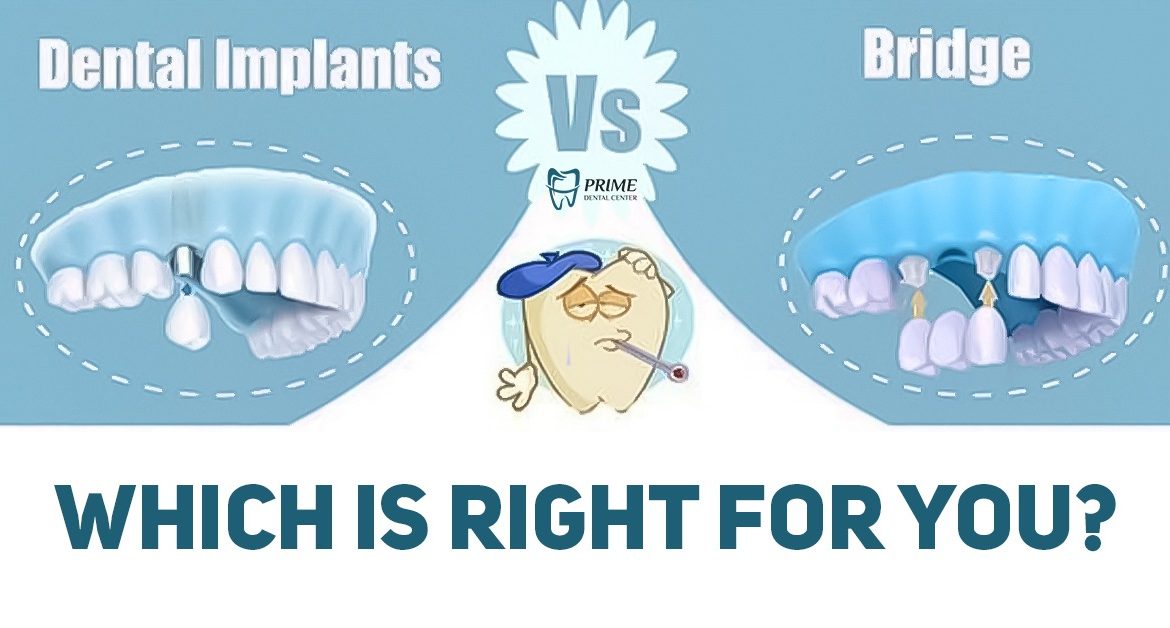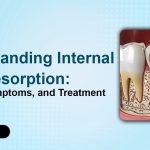Missing teeth can affect more than just your smile—they can influence your confidence, oral health, and even your ability to eat and speak properly. Fortunately, modern dentistry offers two common solutions to replace missing teeth: dental bridges and dental implants. But how do you choose the right option for you? At Prime Dental Center, our expert team is here to guide you through this important decision.
What Are Dental Bridges?
A dental bridge is a fixed appliance designed to “bridge” the gap created by one or more missing teeth. It typically consists of crowns placed on the teeth adjacent to the gap (called abutment teeth) and a false tooth or teeth (called pontics) in between.
Benefits of Dental Bridges
Quick Procedure: Dental bridges typically require two visits, making them a faster solution compared to implants.
Affordable: Bridges are often less expensive upfront than dental implants.
No Surgery Required: Unlike implants, the dental bridge process does not involve surgery, which may make it a more comfortable choice for some patients.
Restored Function: Bridges restore your ability to chew and speak effectively.
Considerations for Dental Bridges
While dental bridges are effective, they have their limitations. Since the adjacent teeth need to be filed down to support the bridge, they may compromise the health of these natural teeth over time. Additionally, bridges may need replacement or repair after 5–10 years, depending on wear and care.
What Are Dental Implants?
Dental implants are a more advanced solution that involves surgically placing a titanium post into the jawbone. This post acts as an artificial tooth root, which is then topped with a custom-made crown that looks and functions like a natural tooth.
Benefits of Dental Implants
Durability: Implants are designed to last a lifetime with proper care, making them a long-term investment.
Natural Look and Feel: Implants closely mimic the appearance and functionality of natural teeth.
Preserves Bone Health: Since the implant integrates with the jawbone, it prevents bone loss and maintains facial structure.
No Impact on Adjacent Teeth: Unlike bridges, implants do not rely on neighboring teeth for support, preserving their health.
Considerations for Dental Implants
Implants involve a surgical procedure and typically require several months for the complete process, as the implant must fuse with the jawbone. Additionally, implants may have a higher upfront cost, though their longevity often offsets this expense over time.
Which Option Is Right for You?
Choosing between dental bridges and implants ultimately depends on your unique needs, oral health, and budget. Here are a few factors to consider:
Jawbone Health: Dental implants require sufficient bone density for support. If bone loss has occurred, a graft may be needed.
Timeline: If you’re looking for a faster solution, dental bridges can typically be completed in just a few weeks.
Budget: While implants have a higher upfront cost, they can provide better long-term value due to their durability and health benefits.
Oral Health: If the adjacent teeth are healthy, implants may be the better option since they preserve the structure of neighboring teeth.
How Prime Dental Center Can Help
At Prime Dental Center, we specialize in providing personalized care to help you make the best decision for your dental health. Whether you’re considering a bridge or an implant, our experienced dentists will evaluate your oral health, discuss your goals, and create a tailored treatment plan just for you.
Don’t wait to restore your smile. Contact Prime Dental Center today to schedule a consultation and take the first step toward better oral health














